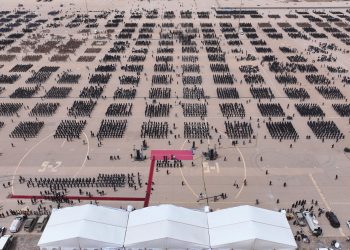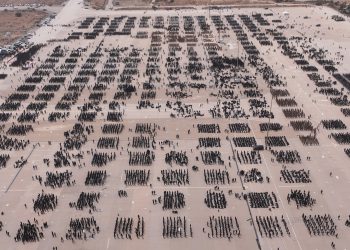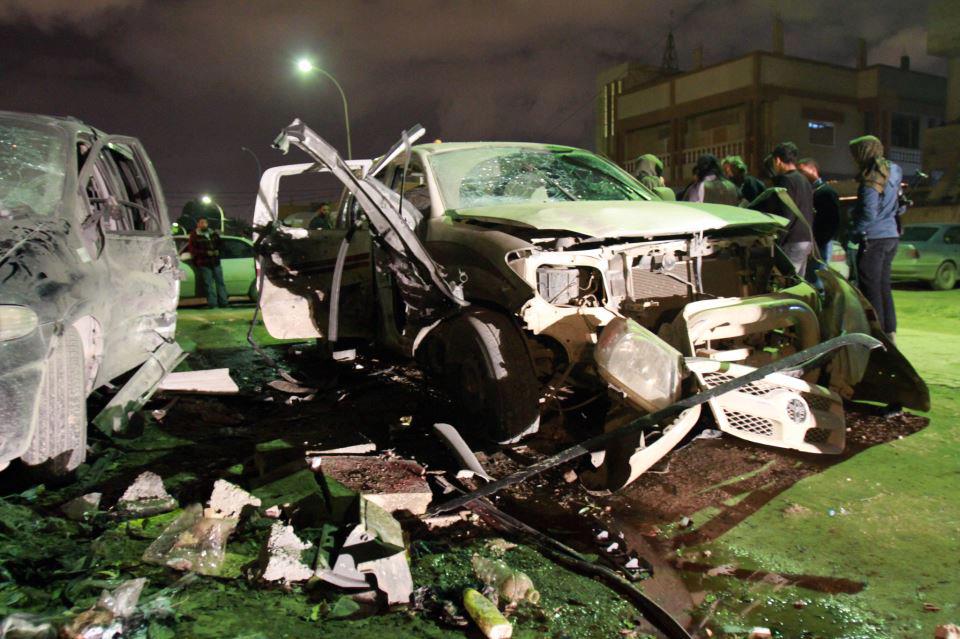By Sami Zaptia.
Tripoli, 7 January:
Yesterday, and coinciding with the same day that the GNC announced that it has officially received the . . .[restrict]Ali Zeidan government’s 2013 budget proposal, former First Deputy Prime Minister Mustafa Abushagur defended his government against accusations of corruption or squandering.
For two successive weeks Libya Herald has been asking at the Prime Ministerial Thursday press conference about the budget. But for two weeks the government has had no information available yet.
Two weeks ago Libya Herald asked the current First Deputy Prime Minister Awad Barasi to provide some information about the 2012 Budget and what percentage was spent and what balance, if any, would be carried forward to the new 2013 budget. Mr Barasi said that he had no information to give at the time.
Last Thursday Libya Herald asked Prime Minister Ali Zeidan if he would give us some information about the 2012 and 2013 budget. Zeidan anticipated that any balance from the 2012 budget would be carried forward to the 2013 budget, but declined to give any details at the time, saying that the 2013 budget was not quite ready for public disclosure. He made no comments about the 2012 budget.
Yesterday the GNC announced that it had received the 2013 Budget proposal by the Zeidan government. It revealed no further details besides saying that it will be studying it over the next few days.
Libya Herald’s questions regarding the Budget have partly emanated from the generally held belief that the Al-Kib government had failed to spend the majority of its 2012 budget. A general belief that has never been officially confirmed by official data.
This lack of official confirmation has led to much “chatter” and speculation both on the social networks and within Libyan society. The thrust of this chatter and speculation is that if the Kib government is alleging that it had spent all of the LD 68.5 billion of its 2012 budget, and the general public saw no evidence of this money being spent in the Libyan economy, then where has it all gone? Has there been squandering or corruption on a massive scale?
Moreover, GNC Head Mohamed Magarief stated to the press yesterday that the Kib government had spent LD 5 billion on its “offices and furniture”.
The build-up of this chatter and the Magarief statement led finally to former First Deputy Prime Minister Mustafa Abushagur, yesterday, to come out in defence of his government on his personal Fecebook page.
| The 2012 Budget allocations in LD | Actual amounts spent from the 2012 budget in LD | Percentage of budget spent | Unspent balance from 2012 budget LD | |
| Chapter one – Wages | 18.67 billion | 11.74 billion | 63% | 6.93 |
| Chapter two – operational expenses | 12.13 billion | 5.09 billion | 42% | 7.04 |
| Chapter three – Development programmes | 19.12 billion | 6.05 billion | 32% | 13.07 |
| Chapter four – Subsidies | 14.6 billion | 7.12 billion | 49% | 7.48 |
| Reserves | 4.0 billion | 1.76 billion | 44% | 2.24 |
| Total | 68.52 billion | 31.76 billion | 46% | 36.77 |
Figures supplied by Mustafa Abushagur from his Facebook page. Figures have been rounded up.
Abushagur revealed (and posted the above table in Arabic) that in fact the government that he was part of had only spent 46% – or LD 31.76 billion – of its total budget, leaving a healthy balance of LD 36.76 billion.
His figures, assuming that they are accurate and there is no reason to suggest otherwise, also lay bare the problems that the Libyan economy faces. The biggest outlay and item of expenditure was by far on wages: an eye-watering LD 11.74 billion or over a third of the government’s expenditure.
The figures also reveal the staggering LD 7.12 billion spent by the Libyan government on the various food, hydrocarbon and electricity subsidies.
On the other hand, the figures reveal that in comparison only LD 6.05 billion were spent on Development Programmes, despite that sector being allocated LD 19.12 billion in the 2012 budget.
There are two schools of thought in Libya about the fact that the Kib government chose to spend so little of its allocated budget.
The first school commends Al-Kib for being prudent and for not squandering the Libyan public’s money. They understand his lack of experience in government and his fear that because Libya was coming out of a post-revolution situation, the state did not have the machinery to either spend the money or, and more importantly, monitor it in a responsible manner.
We must assume that having approved the 2012 budget, the NTC, who were the precursors to the GNC, and the supreme authority in Libya during the Kib government, intended that the Kib government spend its entire Budget. If this is the case, then we must assume that Al-Kib either could not spend the budget – or took a political decision not to do so.
The other school of thought, on the other hand, is very critical of Al-Kib for not doing more to reactivate the stalled Libyan economy when it was desperate for a reinvigorating shot in the arm.
They also feel that had Al-Kib done more with the budget he could have “distracted” the former armed revolutionaries (thuwar) with new jobs, new businesses, loans, training etc.
Critics felt that he just could have done more with all the money to hasten Libya’s recuperation from the Revolution. One day Al-Kib may answer these questions, but until then it seems we have to speculate as to his motives and policies.
It is no surprise then that yesterday, Abushagur reacted angrily to Mohamed Magarief’s statement in a television interview that the Kib government had spent LD 5 billion on “the preparation of offices and furniture”.
Abushagur said on his Facebook page, “Honestly, I do not know where Mr Magrief came up with this figure from”.
Abushagur went on to explain that “Chapter 2 of the budget deals with operational and running expenses and is LD 5 billion. These expenses include everything you need so that the state can conduct its business: fuel and maintenance of vehicles, stationery, travel and conference expenses, maintenance of buildings and furniture, training and hygiene, mail and legal obligations. And the other things that the country needs to conduct its business”, Abushagur explained.
“Mr Magrief summarized all these expenses and made them into “office furniture”, Abushagur pointed out.
“It remains for Mr. Magarief to show documents to the media to supports what he said”, Abushagur retorted.
Abushagur then went on to address other comments GNC Head Magarief made on the budget during the interview.
“Mr. Magrief said with amazement at the same interview that the government spent LD 19 billion on salaries. The Government had earmarked LD19 billion in the budget for salaries, but about 12 billion of which were actually disbursed”.
“He says the budget salaries for the year 2010 were LD 8 billion and this is true. But salaries had doubled by the beginning of 2011 as well as after the liberation, as the state took on the responsibility of paying the salaries of state employees and also employees of public companies and private companies whose salaries were stopped due to the cessation of work or due to companies leaving the country in the days of the revolution” Abushagur added.
“And those are Libyans upon whom Libyan families are dependant and the Libyan state committed itself to pay their salaries or the minimum of 450 dinars per month.
This also included the salaries of the Supreme Security Committee (SSC) whose membership had reached 145,000. The state was committed to all these salaries at this exceptional stage”, Abushagur explained.
“The transitional government has provided all the ministries and the files of all the Ministries and their budgets and expenditures to the committee whose members include the Audit Bureau”, Abushagur stressed.
In concluding his defence Abushagur said that “If there were any financial irregularities they should be investigated formally. The government does not prosecute on television”, he added in a parting swipe at GNC Head Mohamed Magarief.
It is a sign of the times that some of the most informative information and debates about the present and past Libyan governments are appearing on the social networks.
It would have been better had these details come out via the Al-Kib government on their final days or via the Zeidan government upon the handover of power. As Abushagur has alluded, there was a committee which oversaw the official handover of accounts, so to speak.
It would have been more democratic and accountable to the Libyan people, in the new, free and transparent Libya, if as part of that handover Al-Kib had addressed the Libyan public and media to answer questions about the budget and what was and was not spent from it.
It is unfortunate, therefore, from a democratic point of view that all this debate is being carried out on the personal Facebook page of the ex Deputy First Prime Minister.
The positive about that is that at least Abushagur has chosen to put the record straight – even if it was through Facebook.
[/restrict]








